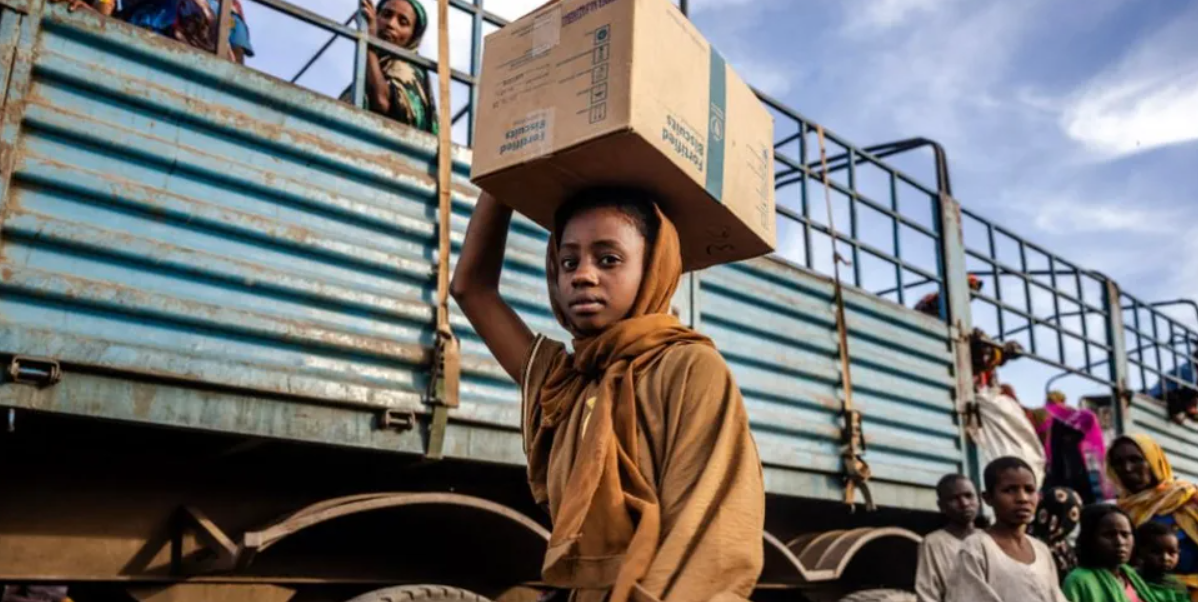A Comprehensive Analysis of the Current Crisis in Sudan
The Rapid Support Forces (RSF), a powerful paramilitary force, and the Sudanese army fought tooth and nail for control of the country in April 2023, causing widespread chaos. Over 15,000 people have died and nine million have been forced from their homes as a result of this violence, making it one of the worst displacement crises in the world, according to the UN.
Background Information on Location and Population
Among the biggest countries in Africa, Sudan occupies a vast 1.9 million square kilometers (734,000 square miles) in the northeast. The country’s official languages are Arabic and English, and the majority of its citizens are Muslims. In 2022, the average yearly income per capita in Sudan was $750 (£600), placing the country among the world’s poorest even before the violence broke out. According to Sudan’s minister of finance, the economy shrank by 40% last year due to the war’s worsening of the situation.
Persons of Note in the Struggle
Gen. Abdel Fattah al-Burhan and Gen. Mohamed Hamdan Dagalo (Hemedti) headed a council of generals that took control of Sudan during a coup in 2021. This group is responsible for the ongoing crisis. Tensions between these two heads of state have been heightened by their disagreements over the future of the country and the transfer of power to civilians. The main point of dispute has been the question of commanding the combined 100,000-strong RSF and how it would be integrated into the national army. They think the two generals are trying to hold on to their wealth, power, and influence.
A 2013 offshoot of the Janjaweed militia, the RSF is known for its savagery in Darfur. The RSF has become an extremely powerful organization during Gen. Dagalo’s leadership. The RSF has been involved in wars in Libya and Yemen and has developed substantial economic interests, including as ownership of several gold mines in Sudan. For a long time, the RSF was under scrutiny for alleged human rights violations, most notably the killing of more than 120 demonstrators in June 2019.
A Violent Incident
When the RSF redeployed personnel around the country on April 15, 2023, the army saw it as a direct threat and tensions worsened. Violence erupted and swiftly swept across Sudan, shattering expectations for a peaceful resolution. Urban areas have been the epicentre of the battle, with innocent residents becoming casualties.
Present Control Over Territories
Both Khartoum and the Darfur region have been captured by the RSF. Nonetheless, the military continues to exert authority over the eastern and northern regions, which include the strategically important Red Sea port of Port Sudan. In December, the army suffered a major defeat when the RSF took control of Wad Madani, a key city and center for humanitarian aid. An important city close to Khartoum, Omdurman, was partially recaptured by the army in February, including the national broadcaster—a symbolic triumph. El-Fasher, the last big Darfur city controlled by the army, is currently under RSF siege, and attention has turned there.
Results for Regular People
War crimes have been committed by both sides, and the fighting has had a devastating impact on civilian life. Volker Perthes, the United Nations envoy to Sudan, denounced the RSF for sexual assault, plunder, and murders, while attacking the army for its indiscriminate airstrikes. Attacks on hospitals and other aid delivery facilities have worsened what the United Nations has described as the “world’s worst hunger crisis.” Action Against Hunger claimed that five million people in Sudan are experiencing food insecurity on an emergency level.
Reported Genocide
There have been accusations of ethnic cleansing, namely in Darfur, where RSF-affiliated militias are allegedly targeting non-Arab and ethnic Massalit populations. Crimes against humanity have been documented in the region, according to Human Rights Watch. The United Kingdom, the United Nations, and the United States have all denounced these acts, expressing concern about the increasing likelihood of genocide.
Reaction on Global Scale
There has been criticism that the international response to the situation in Sudan has been insufficient. Amnesty International has characterized diplomatic attempts as “woefully inadequate,” while the International Crisis Group has characterized them as “lacklustre.” French President Emmanuel Macron announced €2 billion ($2.1 billion) in April, among other international aid pledges. But international peace efforts, notably those in Saudi Arabia and Bahrain, have time and time again fallen flat.
International and Regional Engagement
Countries in the region, including South Sudan, Chad, and Libya, have offered their support to the RSF. Even though it disputes the charges, the United Arab Emirates (UAE) is under scrutiny for allegedly providing weapons to the RSF. Foreign actors should stop supporting Sudan’s warring factions, according to the US and UK. The army has reportedly received assistance in regaining land near Khartoum from drones manufactured in Iran.
In summary
Extreme human suffering is being inflicted by the Sudan conflict, which is fueled by ethnic tensions and has its origins in long-standing power struggles. Achieving a sustainable resolution necessitates combined efforts from many internal groups and the international community, even though foreign attention and aid are vital. Serious repercussions for the people of Sudan are likely to ensue unless there is a serious dedication to peace and stability.



















